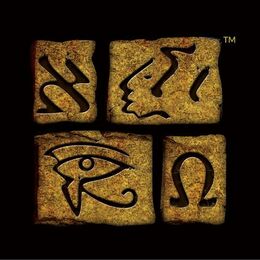
FAIR is a non-profit organization dedicated to providing well-documented answers to criticisms of the doctrine, practice, and history of The Church of Jesus Christ of Latter-day Saints.
It is claimed that Joseph Smith plagiarized Josiah Priest's The Wonders of Nature and Providence Displayed in order to write portions of The Book of Mormon.
Matthew Roper makes several observations regarding this claim:
| The Wonders of Nature(1825) | Book of Mormon | Other similar phrases |
|---|---|---|
| For instance, in many places, such as the isthmus of Darien, a narrow neck of land is interposed betwixt two vast oceans. (p. 598) | And they built a great city by the narrow neck of land, by the place where the sea divides the land. (Ether 10:20) | A long narrow tract of land projecting from the main body, or a narrow tract connecting two larger tracts; as the neck of land between Boston and Roxbury. (Webster's Dictionary (1828) |
| The Wonders of Nature(1825) | Book of Mormon | Other similar phrases |
|---|---|---|
| "Darkness which may be felt.... vapours ... so thick as to prevent the rays of the sun from penetrating an extraordinary thick mist. ... no artificial light could be procured ... vapours would prevent lamps, etc. from burning. ... [T]he darkness lasted for three days." (p. 524) | "[They] could feel the vapour of darkness, and there could be no light ... neither candles, neither torches, ... neither the sun ... for so great were the mists of darkness ... [I]t did last for the space of three days." (3 Nephi 8꞉20-23) | They saw not one another. So deep was the obscurity, and probably such was its nature, that no artificial light could be procured; as the thick clammy vapors would prevent lamps, &c., from burning, or if they even could be ignited, the light through the palpable obscurity, could diffuse itself to no distance from the burning body. The author of the book of Wisdom, chap. xvii. 2-19, gives a fearful description of this plague. He says, "The Egyptians were shut up in their houses, the prisoners of darkness: and were fettered with the bonds of a long night. They were scattered under a dark veil of forgetfulness, being horribly astonished and troubled with strange apparitions; for neither might the corner that held them keep them from fear; but noises as of waters falling down sounded about them; and sad visions appeared unto them with heavy countenances.
No power of the fire could give them light-only there appeared unto them a fire kindled of itself very dreadful; for being much terrified, they thought the things which they saw to be worse than the sight they saw not. For though no terrible thing did scare them, yet being scared with beasts that passed by, and hissing of serpents, they died for fear: for whether he were husbandman, or shepherd, or a labourer in the field, he was overtaken; for they were all bound with one chain of darkness. Whether it were a whistling wind, or a terrible sound of stones cast down, or a running that could not be seen of tripping beasts, or a roaring voice of most savage wild beasts, or a rebounding echo from the hollow mountains, these things made them to swoon for fear." See Psalms 78:49. To this description nothing need be added except this circumstance, that the darkness, with its attendant horrors, lasted for three days. ("Commentary on Exodus X: The Ninth Plague - Thick Darkness, Verse 23" Clarke's Commentary, Vol. 1 |

It is claimed that Joseph Smith plagiarized Shakespeare in order to write portions of The Book of Mormon. However, there is no evidence that Joseph had read Priest's book. Even so, there is so little of it that has parallels with the Book of Mormon that this would provide a forger with little help. The passages which suggest Shakespeare are better explained by other ancient parallels; in any case, these passages provide very little that would assist in writing the Book of Mormon.
| The Wonders of Nature(1825) | Book of Mormon | Other similar phrases |
|---|---|---|
| I then requested him to leave me, as my time was short, and I had some preparation to make before I went hence to "that bourne from whence no traveller returns." (p. 469) | "Awake! and arise from the dust, and hear the words of a trembling parent, whose limbs ye must soon lay down in the cold and silent grave, from whence no traveler can return; a few more days and I go the way of all the earth. " (2 Nephi 1:14) |
|
The phrase "from whence no traveller returns" quoted by Josiah Priest is from Shakspeare's Hamlet. Therefore, an alternate criticism is the Joseph Smith plagiarized this line from Hamlet.
B.H. Roberts notes that the critic "fairly revels in the thought that he has Lehi quoting Shakespeare many generations before our great English poet was born; and indulges in the sarcasms which Campbell and more than a score of anti-Mormon writers have indulged in who have mimicked his phraseology." Roberts notes that the Book of Job, contained in the Jewish scriptures that Lehi certainly would have been familiar with, contains two passages "which could easily have supplied both Shakespeare and Lehi with the idea of that country 'from whose bourn no traveler returns.'" In other words, Lehi could have obtained his idea from the same source from which Shakespeare obtained the inspiration for his phrase. Roberts concludes:
Wrote Hugh Nibley:
To see citations to the critical sources for these claims, click here

FAIR is a non-profit organization dedicated to providing well-documented answers to criticisms of the doctrine, practice, and history of The Church of Jesus Christ of Latter-day Saints.
We are a volunteer organization. We invite you to give back.
Donate Now